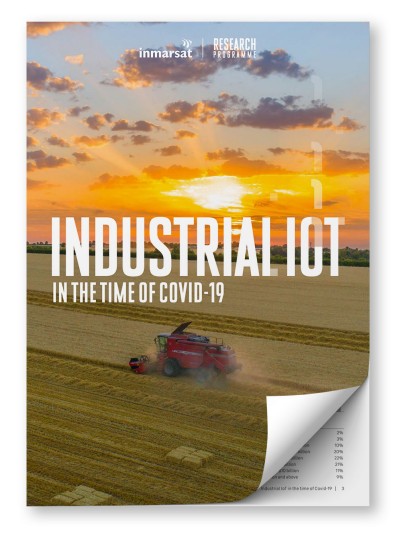Mark Perera, CEO and Founder of leading SaaS supplier collaboration tech platform Vizibl, talks about the need for companies to put in place SMART goals, outlining what they are and how they can be achieved with the end goal of improving supplier collaboration.
In the new hybrid working environment with reduced commuting and fewer in-person meetings and events, it is easy to get to the end of the day and wonder what you have accomplished.
In 2022, individuals and organisations are still coming to terms with working with – and as part of – a dispersed workforce. The reduced visibility can make it tough for all parties to understand productivity, workloads, goals, and boundaries.
More effectively leveraging the ecosystem
This is also the case when working with partners and suppliers. Many of us struggle to set and stick to goals in both our personal and professional lives, and the same can be said throughout the lifecycle of a relationship with another organisation. Goal-setting is not always that well-embedded into our make-up. It is something we consider when we start a new job or at the start of a new year, but while declaring your intentions is an essential first step, it’s often difficult to turn these goals into concrete action.
Frequently, this is because we set too many goals, or goals that are vague, too ambitious, or impossible to prove progress against.
The need for SMART goals
SMART goals ensure that you avoid these common barriers by clarifying the vision and the ideas, focusing the team’s efforts, and allowing you to deploy resources productively.
Working with numerous organisations with large supplier ecosystems has given us extensive insight into the value of setting these SMART goals with suppliers; they ensure that initiatives and projects are given initial focus at the outset and that they stay on track. This alignment enables Supplier Relationship Management and Supplier Collaboration efforts to flourish.
Adopting this technique means setting goals that are:
- Specific (keep it simple but significant, stay away from ambiguities)
- Measurable (easily quantifiable)
- Achievable (agreed with those involved so that they can be attainable)
- Relevant (reasonable, realistic, and results-based)
- Time bound (time-based, time-limited, timely, and time-sensitive)
This not only keeps things simple, the clarity helps navigate any difficulties that arise over the course of reaching these goals.
Putting theory into practice
In theory, this all sounds straightforward, but how do you convert the theory into practice?
When getting started, it’s important to take time to think about the broad picture. Answer the basic existential question: ‘what do I want with this supplier or from a supplier relationship in general?’ and ‘what are good business outcomes for the supplier and for the organisation?’
This will help to visualise the general direction the partnership should take.
The answer to this question might be: ‘I want to drive innovation and collaboration with my suppliers to improve quality and new services’, ‘I want to enhance the relationship with the supplier to help both businesses grow in a mutually satisfactory way’, or ‘I want to be a champion in setting up great relationships with suppliers that drive trust and bring real value to both parties’ It is really important from the outset that you understand what you want to achieve.
Making sure goals aren’t open-ended
With the vision established, you can start answering ‘when do I want that to happen?’ Set a timeline for achieving this in order to give both parties an overall idea of how much time they need to invest in the initiative.
Next, look at breaking the overall vision down into some clear, actionable steps. For example, if the vision states: ‘We want to drive innovation and collaboration with suppliers’. One goal might then be to create a positive, accessible environment that enables suppliers to easily propose innovation ideas. Another goal might be to ensure you are able to capture and track all innovation ideas with your suppliers – and then, subsequently from this – ensure you have an innovation review process that can help you analyse these and determine which ideas are worth investing in.
This will allow you to capture and benchmark how many ideas are being presented. From there, you can create quantifiable and time-bound sub-goals to increase innovative ideas and also track the outcomes of ideas that are being invested in.
The next step is to get specific. Define actions, timelines, deadlines, and measurable KPIs and agree these with your supplier. The more specific you are, the better and easier it is to track and measure. In my view, almost any vision can be translated into clear, specific, time-bound, and actionable steps.
Recheck your goals at regular intervals
Finally, always recheck your goals. Of course, one way to do this is to assess your goals based on the SMART definition. Another way to check is to go through each goal and try to answer the fundamental questions: ‘why, what, who, how, when?’ Whether or not you can answer every single one of these, you’re on the right track. Why? Because you’ve identified existing gaps, and therefore know what amendments are needed to confidently apply the ‘SMART’ logic to each goal.
In conclusion, get to the ‘why, what, how, when and who’, but don’t over-complicate it. As we ease our way out of the pandemic, the world looks very different from two years ago. Against this backdrop of uncertainty, it is more important than ever to start shaping up your goals with suppliers and ensure there is total transparency from all parties around expectations. This will help to significantly reduce the risk of any nasty surprises at the end of the year.











